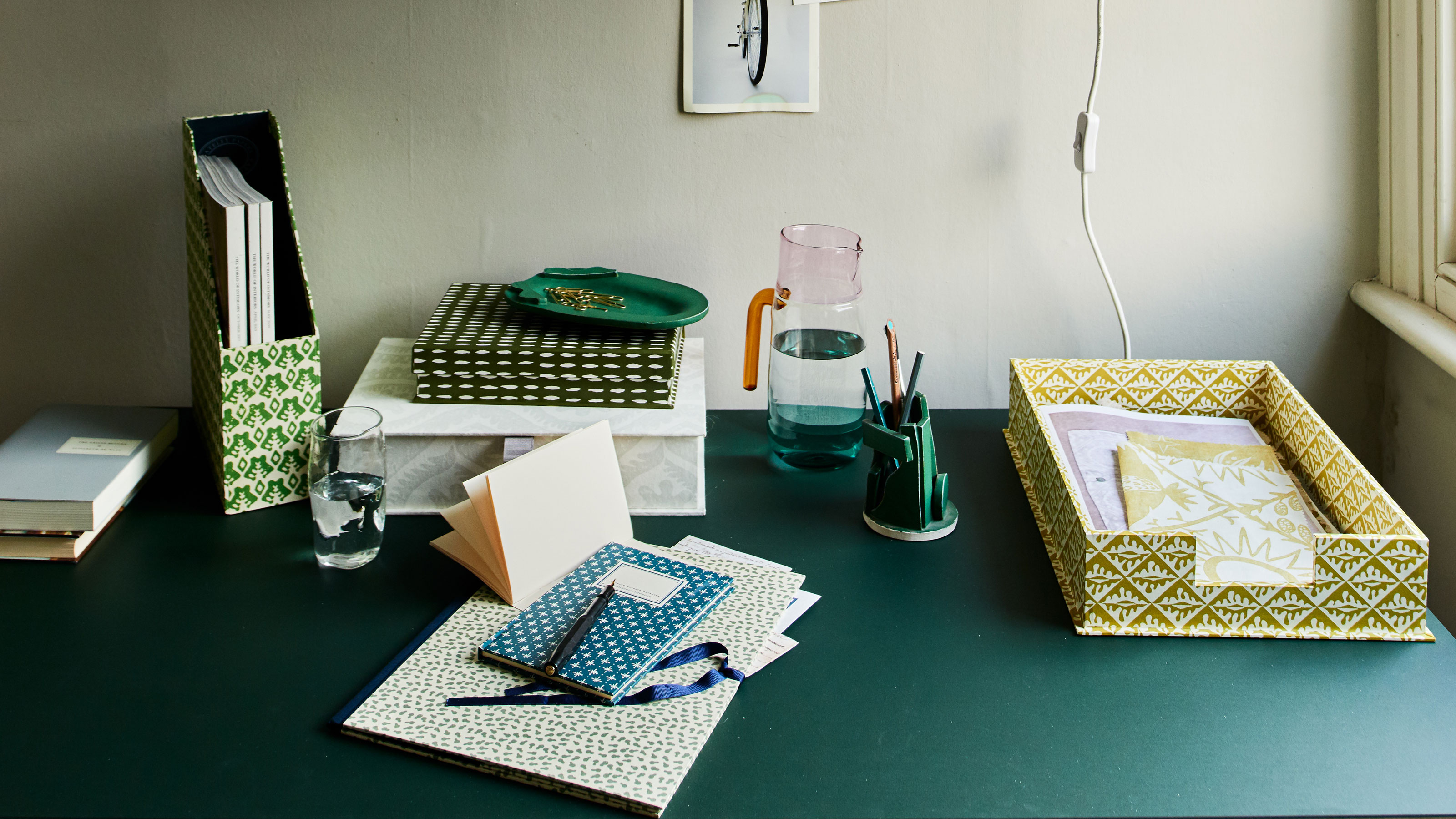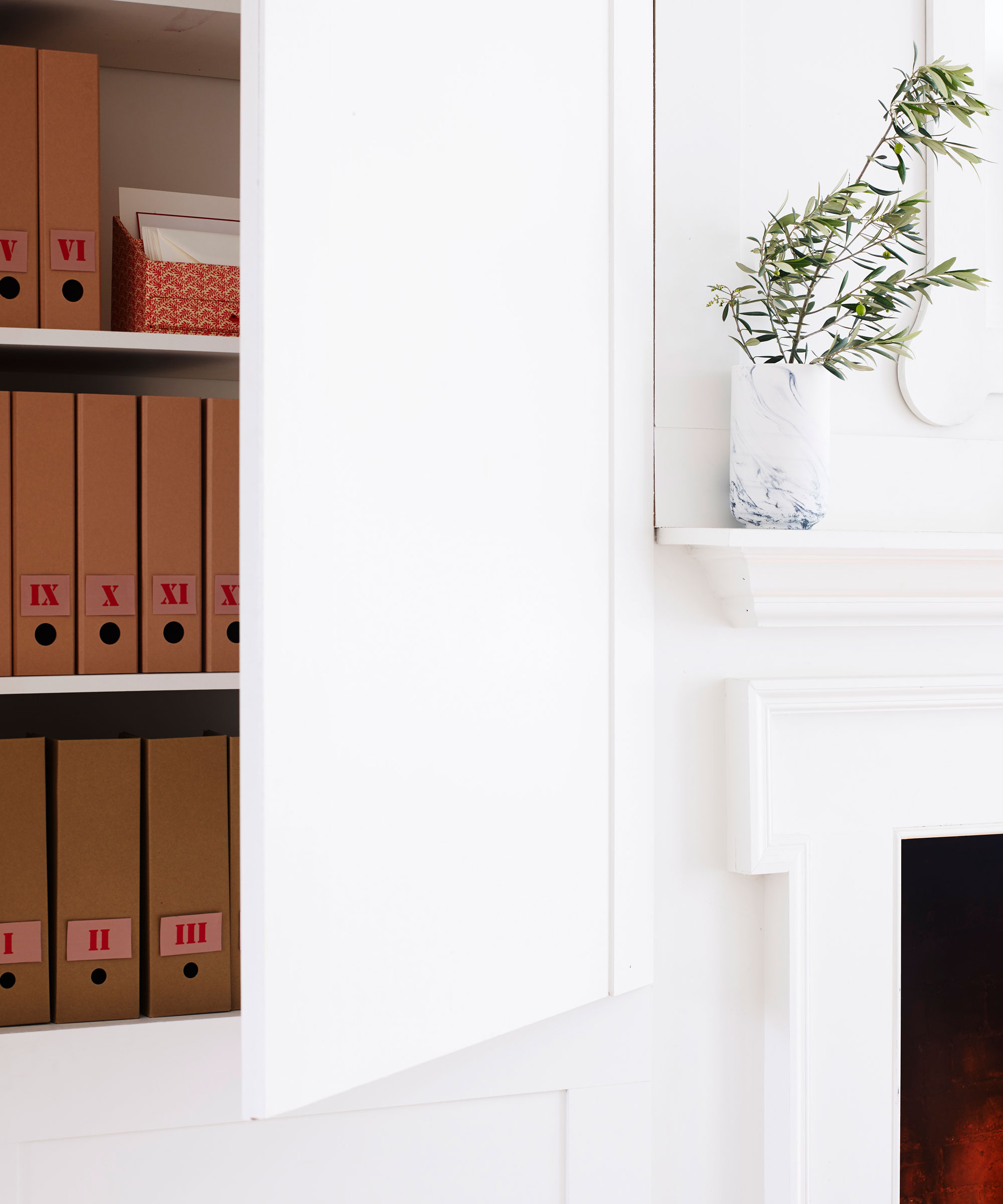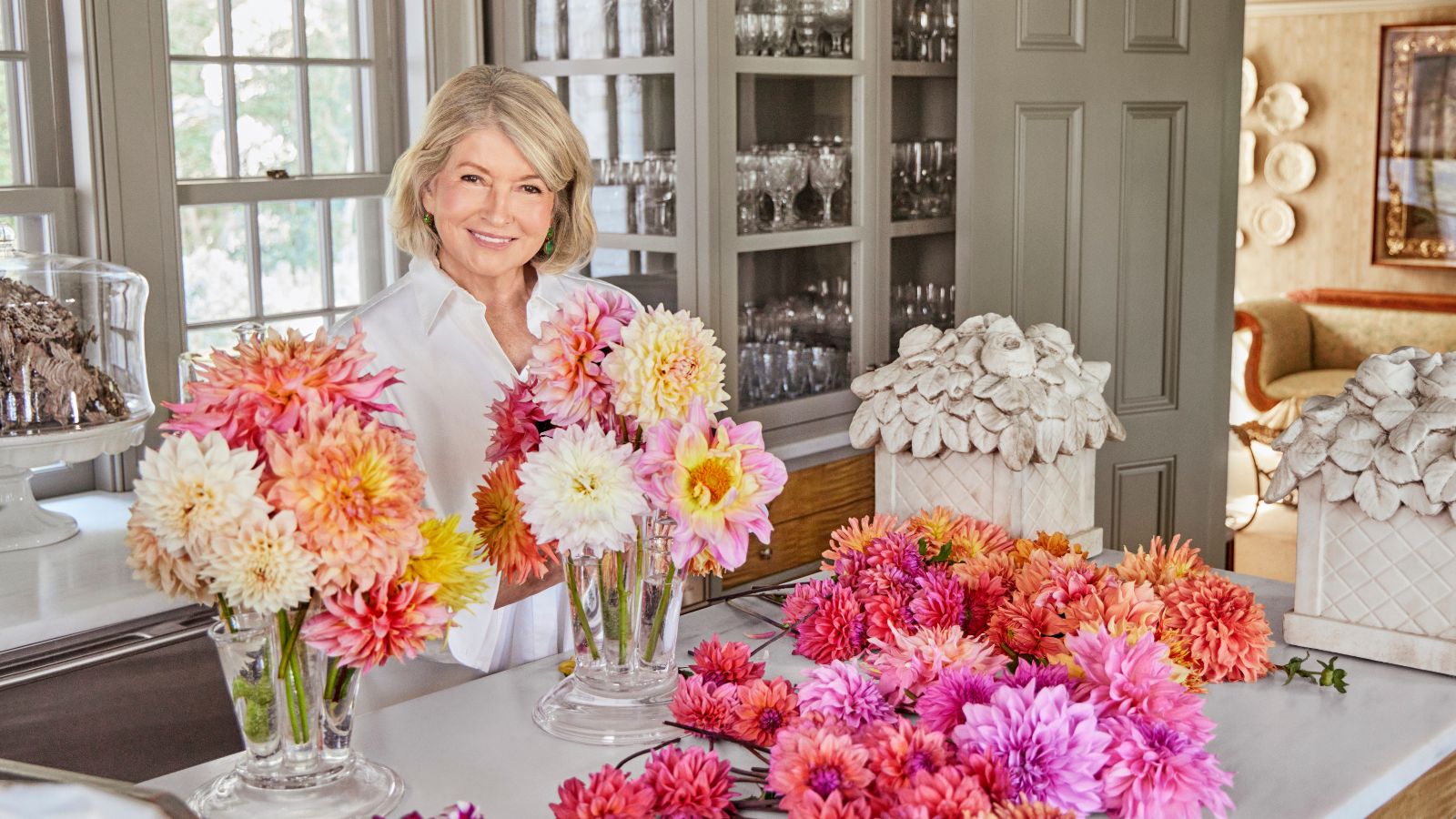How to get rid of paper clutter – home organizers share how to eliminate it for good
Tackle paper clutter with these 6 tips from professional organizers


Despite how much of our daily lives are digital, paper still piles up if we're not careful. Prevent bank statements and bills from cluttering up your kitchen counters, and declutter those drawers overflowing with receipts, invitations, and letters with our advice below.
We often hold onto paper clutter just in case we need it in the future, especially when it includes personal information, but what often happens is we lose track of all the different documents we have.
For a quick fix, you may choose to dedicate two folders or clipboards to long-term papers, like contracts, and short-term papers, such as monthly bills. Then, throw out anything you don't need and go paperless in as many areas as possible.
How to get rid of paper clutter
Professional home organizers have explained how to get rid of paper clutter once and for all, so we can stop holding onto it for longer than necessary.

1. Go through everything
'Just like other clutter in your home, to get rid of paper clutter, you need to go through the papers, sheet by sheet,' says professional home organizer and Homes & Gardens contributing expert Caroline Roberts. 'In this case, though, I highly recommend you keep a notebook handy, so you can jot down all of the different types of papers that you have.'
She says that when going through papers with clients, they find insurance policies and accounts that they didn't remember they had, so they jot down questions that they need to be answered about those particular papers to help them get everything organized.
'As we are sorting the papers, we also write down account names, account numbers, and contact information, so when we are done, they have a list of important information to share with a loved one in case of an emergency,' Caroline says.

Caroline Roberts is a KonMari consultant and founder of the home organization company The Simplified Island. She and her team help clients declutter their belongings. Then they find the best places for your items so that their family members can find things and put them away. She is also a contributing expert at Homes & Gardens.
2. Scan the documents you need to keep

Use a scanning app to scan anything you need to keep hold of (or take photographs of them) and upload everything onto your Google Drive. You could also make a Google Doc with links to important documents, like insurance paperwork and PDFs of appliance manuals so they're all together and easy to find when you need them. Replacing paper with digital copies will free up a lot of space and if you're worried about losing important files you can always save them on a separate hard drive.
3. Shred anything you don't
We often hold onto clutter out of eco-guilt and because we aren't sure of the best way to dispose of it. So consider purchasing an inexpensive shredder, at Amazon so you can get rid of paperwork promptly. Professional organizer Laura Price says that having a shredder will ensure you can throw away unnecessary documents quickly without worrying about your security or bin space. You can even reuse the shreddings within your home by adding them to the composter or using them as bedding for your pets, she suggests.

Laura Price's goal is to help others experience the benefits of living an organized life after discovering that organized homes brought her peace when raising three children in a hectic home. Hence the birth of The Home Organisation, a dedicated team of professional organizers.
4. File remaining hard copies
When you have made digital, scanned copies of papers and shredded documents you don't need, you'll be left with some key documents that you need to keep as hard copies. This will include long-term papers like birth and marriage certificates, medical information, taxes, mortgage papers, and so on. Create a simple filing system for original documents, and consider your organizing style here. For example, if you prefer to hide things away, go for an accordion file organizer, at Amazon.
Simplicity is key – Caroline Roberts observes that many clients tend to overcomplicate things. 'It's often an instinct to create elaborate filing systems for important documents, but they are often too complex to maintain,' she says.
You just need to know exactly what you need to keep and what can be tossed before it gets lost in a pile, and then have a very simple filing system for the papers you need to keep. Keep long-term files in one place – when organizing a home office, use a filing cabinet or some shelving with clearly labeled boxes for paperwork, or use a simple plastic container in a closet.
5. Create an 'action' station
It's also a good idea to have an additional basket or box for things you need to deal with over the next week or two, like a receipt for something you don't know if you're going to return yet. Visual organizers will find it easier to keep bills, spring cleaning checklists and other short-term documents vertically, either pinned to a pin board or in a small wall-mounted basket, at Amazon or a clipboard.
'It’s wise to set up a simple, short-term filing system near wherever you open the post, with a couple of magazine files, boxes, or an in-tray. One labeled “to do” and the other, “to file,”' says Laura Price.
'As the paper comes in, take a minute to review it straight away and decide if it needs doing, filing, or throwing away. Sort the papers accordingly, and try to set up a regular time to file what needs to go into long-term filing. Be deliberate about this though and don’t file anything you don’t really need to keep.'
6. Build good habits
Having sorted through your paper clutter and massively streamlined things, keep up the hard work by making a habit of dealing with paper as soon as you get your hands on it. Do you need to chuck, recycle, file or action it? This more ruthless approach to home organizing involves changing how you think about paper clutter.
'Paper takes up a lot of space in a home and remember, it is flammable. If your home were to catch fire, paper could accelerate the fire and cause even more damage,' reminds Elizabeth Dodson, co-founder of HomeZada, a digital home management app.
'We keep most papers for security reasons or because we think they are essential or we will need them in the future. We think that holding on to more paper creates peace of mind when, in reality, the opposite is true,' she says.

Elizabeth Dodson is the co-founder of HomeZada, a cloud-based platform dedicated to digital home management. The app helps users manage their insurance, home maintenance, and finances.
FAQs
Why do we keep so much paper?
'As humans, it’s ingrained in our nature to keep a paper trail (quite literally), as that was the only way to receive and retain important information,' comments organizing expert Laura Price. 'But with the power of technology, that paper trail can become virtual. Ask for your bank statements to be digital. Swap your magazine subscription for an online one. Order your takeout from the website. Little changes will keep your physical paper trail to a minimum.'
Keep a recycling bag by the front door to give yourself a helping hand when clearing out a lot of paper clutter, and then make sure you have places to put things, with a simple filing system and a 'time will tell' basket for loose papers you don't want to throw out just yet.
This will help you stay on top of paperwork, which is one type of mess that stresses professional organizers out.
Sign up to the Homes & Gardens newsletter
Design expertise in your inbox – from inspiring decorating ideas and beautiful celebrity homes to practical gardening advice and shopping round-ups.

Millie Hurst is a freelance lifestyle writer with over six years of experience in digital journalism. Having previously worked as Solved Section Editor at Homes & Gardens and Senior SEO Editor at News UK in London and New York, Millie has written for an array of homes brands including Livingetc and Real Homes and was formerly Senior Content Editor at Ideal Home. She has written and edited countless features on home organization, decluttering and interior design and always hopes to inspire readers with new ways to enjoy their homes. She loves to weave nature-inspired decor and nods to time spent in Italy into her own home.
-
 Martha Stewart's houses – inside her most iconic properties, from Cantitoe Corners to Turkey Hill
Martha Stewart's houses – inside her most iconic properties, from Cantitoe Corners to Turkey HillThe lifestyle guru built her legacy around her homes, some of which are the most recognized homes in modern American history – we explore her portfolio
By Megan Slack Published
-
 These 5 plants can help you get the best, and potentially tastiest, broccoli ever – discover what to plant with broccoli, and what to avoid
These 5 plants can help you get the best, and potentially tastiest, broccoli ever – discover what to plant with broccoli, and what to avoidOur selection of vegetables, herbs, and flowers is perfect for companion planting with broccoli
By Drew Swainston Published